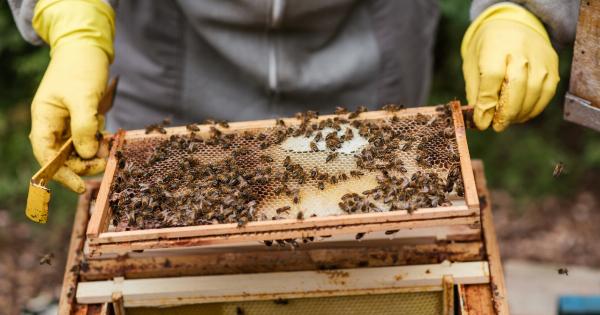Cholesterol is one of the essential substances that our body needs to function. It is a waxy, fatty substance that is present in every cell of the body.
The liver produces most of the cholesterol that our body needs, but we also get it from the food we eat. In this article, we will discuss the science of cholesterol with a focus on enzymes and foods that affect our cholesterol levels.
What Is Cholesterol?
Cholesterol is a type of lipid that is essential for many functions in the body. It plays a vital role in the formation of cell membranes, hormones, and vitamin D. It is also used to create bile acids that help in the digestion of fats.
Cholesterol is transported through the bloodstream in the form of lipoproteins.
Lipoproteins and Cholesterol
Lipoproteins are complexes of proteins and lipids that transport cholesterol and other fats through the bloodstream. There are two types of lipoproteins: low-density lipoprotein (LDL) and high-density lipoprotein (HDL).
LDL is often referred to as “bad cholesterol” because it can carry cholesterol to the arteries, where it can build up and cause plaque.
HDL, on the other hand, is called “good cholesterol” because it helps to remove excess cholesterol from the arteries and transport it back to the liver for processing.
Enzymes and Cholesterol Metabolism
Enzymes are proteins that help to speed up biochemical reactions in the body. There are several enzymes involved in the metabolism of cholesterol, including HMG-CoA reductase, which is responsible for producing cholesterol in the liver.
Statins are a class of drugs that work by inhibiting HMG-CoA reductase, thus reducing the amount of cholesterol that the liver produces.
Another important enzyme involved in cholesterol metabolism is acyl-CoA:cholesterol acyltransferase (ACAT), which converts cholesterol into cholesteryl esters that can be transported and stored in cells.
As cholesterol accumulates in cells, it can contribute to the development of atherosclerosis.
Foods that Affect Cholesterol Levels
While the liver produces most of the cholesterol that our body needs, we also get it from the food we eat. Some foods can increase cholesterol levels, while others can help to lower them. Here are some foods that can affect cholesterol levels:.
Foods that can Increase Cholesterol Levels
- Saturated and trans fats: Saturated and trans fats can increase LDL cholesterol levels. These fats are commonly found in animal products such as meat, butter, cheese, and cream, as well as in processed foods such as baked goods, fried foods, and snack foods.
- Sugar and refined carbohydrates: Eating too much sugar and refined carbohydrates, such as white bread, pasta, and rice, can lead to higher triglyceride levels, which can contribute to the development of atherosclerosis.
Foods that can Help to Lower Cholesterol Levels
- Fruits and vegetables: Fruits and vegetables are high in fiber, antioxidants, and other nutrients that can help to lower LDL cholesterol levels and reduce the risk of heart disease.
- Whole grains: Whole grains are also high in fiber, which can help to lower cholesterol levels. Examples include whole wheat bread, brown rice, and oatmeal.
- Fatty fish: Fatty fish such as salmon, tuna, and mackerel are high in omega-3 fatty acids, which can help to lower triglycerides and reduce the risk of heart disease.
The Bottom Line
Cholesterol is an essential substance that our body needs to function. However, too much cholesterol can lead to atherosclerosis, which can increase the risk of heart disease.
By eating a healthy diet, exercising regularly, and taking medications if necessary, we can help to maintain healthy cholesterol levels and reduce the risk of heart disease.

























